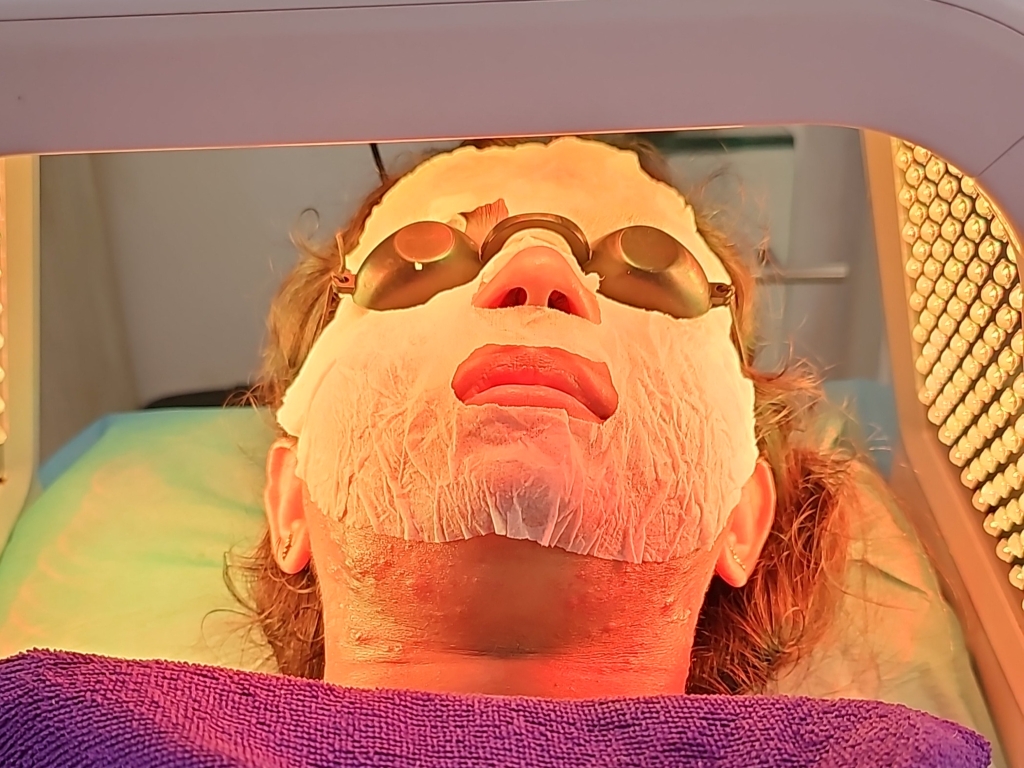Navigating Skin Pigmentation, Sunburn, and Hot Weather with Advanced Aesthetic Treatments

As the temperature rises and the sun shines brighter, many of us find ourselves exposed to the warmth of the outdoors. However, along with the sunny weather come the challenges of protecting our skin from harmful UV rays. In tropical climates like ours, sunburns and skin pigmentation are common concerns that not only affect our appearance but also our overall skin health.
Skin pigmentation is a condition characterized by irregular darkening or lightening of the skin, often worsened by sun exposure. While it can be caused by various factors including hormonal changes, genetics, and environmental factors, sun exposure remains one of the primary contributors, especially in hot weather. As a Cosmetic Physician at MyCosmeticclinic.lk, I have witnessed firsthand the impact of sunburn and pigmentation on my patients’ skin and their self-esteem during these days.
When your skin is exposed to the sun, it absorbs UVB radiation, which causes sunburns. UVB rays damage the DNA in skin cells, triggering inflammation, redness, and discomfort. UVA rays penetrate deeper into the skin, affecting the dermis. Although they are less likely to cause immediate sunburn, they contribute to long-term skin damage and pigmentation issues. When skin is exposed to UV radiation, the body’s defense mechanism kicks in. Specialized cells called melanocytes produce more melanin to absorb and dissipate the radiation, resulting in a tan. However, excessive or uneven melanin production can cause pigmentation issues which can lead to the formation of dark spots, sunspots, and hyperpigmentation, especially in areas repeatedly exposed to the sun.
One effective way to address these issues is through aesthetic treatments tailored to target skin pigmentation and sun damage. These treatments not only focus on existing pigmentation but also aim to prevent future damage, resulting in a more radiant and even complexion.
Laser therapy is a popular treatment option that is gaining momentum. It utilizes focused light energy to target specific areas of pigmentation, effectively breaking down excess melanin and stimulating collagen production. This results in smoother and more evenly-toned skin. With the continuous advancements in technology, laser treatments have become even safer and more effective, delivering noticeable results while requiring minimal downtime. Fractional laser treatments create microscopic injuries in the skin, stimulating the body’s natural healing process. This promotes collagen production and replaces damaged skin cells with new, healthier tissue while Q-Switched lasers emit short, high-energy pulses of light that target pigmented lesions. They break down melanin into smaller particles, allowing the body to eliminate them naturally.
Another option to combat pigmentation is through chemical peels. These treatments involve the application of a solution to the skin, which effectively exfoliates the outer layer and reveals fresher, brighter skin beneath. Chemical peels can effectively reduce the appearance of pigmentation, sunspots, and uneven skin tone, resulting in a rejuvenated and more youthful complexion. By specifically targeting excess melanin in the skin, chemical peels effectively address pigmentation issues such as sunspots, age spots, and melasma. With regular treatments, pigmented lesions gradually become lighter and less noticeable, leading to a more even complexion. In addition to addressing pigmentation concerns, chemical peels also exfoliate the skin, smoothing out rough patches and refining skin texture. This ultimately results in a softer, smoother, and more radiant complexion.
In addition to professional treatments, it is crucial to establish a comprehensive skincare regimen to maintain healthy, radiant skin, especially in hot weather. Daily sun protection is essential because prolonged exposure to harmful UV rays can speed up skin aging and worsen pigmentation issues. By incorporating a broad-spectrum sunscreen into your skincare routine, you can shield your skin from UV rays, effectively preventing sun damage and reducing the risk of pigmentation problems. Additionally, integrating antioxidant-rich serums into your regimen helps combat oxidative stress caused by environmental factors like pollution and UV radiation. These serums also promote collagen production and skin repair. Antioxidants such as vitamins C and E neutralize free radicals, protecting the skin from premature aging and enhancing its resilience against external aggressors. Hydration is also crucial, especially in hot weather when the skin is prone to dehydration. By using moisturizers with hydrating ingredients like hyaluronic acid and glycerin, you can replenish the skin’s moisture barrier, keeping it supple, plump, and resilient.
Prioritizing skin health is not just a concern during certain months of the year, but it should be a commitment throughout the year. By adopting a holistic approach that includes professional aesthetic treatments, consistent sun protection, and a nourishing skincare routine, individuals can effectively address issues such as skin pigmentation, sun damage, and premature aging. At https://mycosmeticclinic.lk, we are committed to offering personalized solutions that are tailored to your specific skin concerns, assisting you in achieving the radiant and youthful complexion that you deserve.
Dr. Harsha Jayakody
Aesthetic & Cosmetic Physician
MBBS (Sri Lanka), MBA in Health Admin (Malaysia), MSc (Sri Lanka),
MD (Sri Lanka)
Diploma in Aesthetic Medicine (PIA)
Member of CFAT (New Delhi)
Member of the American Academy of Aesthetic Medicine (AAAM)
Board Certification from IEBDAC (UK)


